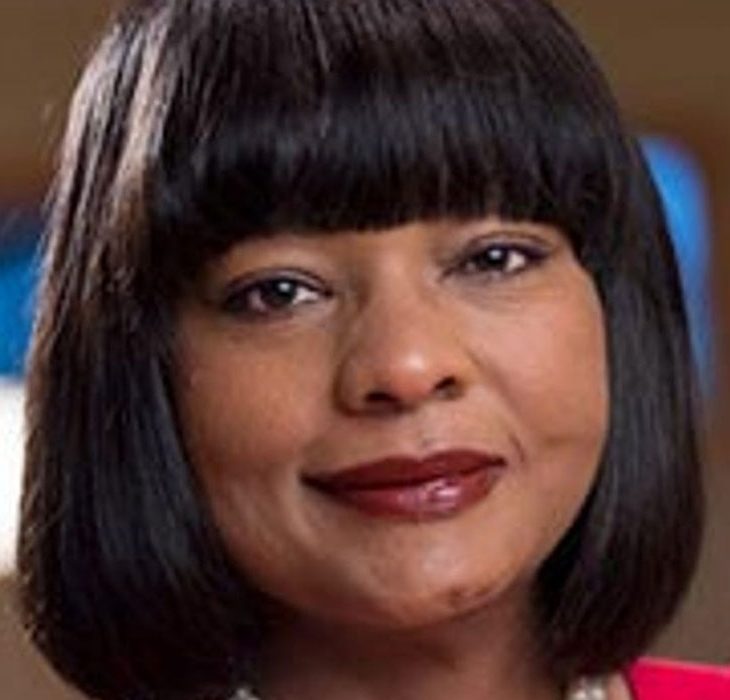Hope is a Weapon
April 7, 2020

As someone who rejoices in peace and believes education can – and must – play a role in the creation of positive peace, you won’t often hear me utilize analogies that include war or weapons. I find those words to be harsh and enabling of a culture of violence. But, in this moment of crisis, the phrase that most immediately comes to my mind as a leader is: “Hope is a weapon.” Hope is a weapon.
At this moment, many of us feel unmoored, unstable, uncertain. Each day, we hear stories about how many are infected with Covid-19, the rising death toll and the numerous indicators that the economy is unraveling. Yes, we do need to see and honor the sick and the dying; and, it is only by understanding the economic impact can we work through this moment. However, we also need to give the community something to hold onto in this time of crisis. In the absence of hope we are left only with despair. My message to college campus communities across the country is that hope is not only something to hold onto, but it is what we need to protect ourselves against pervasive feelings of loss and grief. We need hope when we determine within ourselves that we are going to continue to move forward – safely and with all due precautions – to support ourselves and our neighbors. Hope is what we cling to when all else is lost. Hope is a weapon.
To be clear, when I speak of hope I mean action. Hope is not merely sitting at home willing things to be better. That is a wish. Hope is recognizing in your heart that things can be better and that you have an active role to play in making them better. Hope is determining what steps, tentative though they may be at first, you are going to take to make things better. Hope is realizing that while you alone cannot stop a pandemic; you choose to act.
As a concept, hope resonates across religious traditions. Judaism, Christianity, and Islam each speak directly to the role of hope in the creation, sustenance, and gift of the traditions. Whether we encounter hope as tikvah in Judaism, amal in Islam or faith in Christianity, the core of these words convey similar sentiments: a desire for a brighter future; a powerful binding together of people in the pursuit of that shared desire; the power of action in bringing that future to bear. Across these traditions, the concept of hope has been used to sustain people in the most challenging times and under the most difficult of circumstances.
The same use of hope as a mobilizing force is needed today. Therefore, as a leader, I believe the most important and powerful work for me at this moment is to be a conveyer, convener and conduit of hope. It is my obligation to not only deploy but to share and enhance the weapon of hope. I have reached out to my professional colleagues, students, and neighbors to proactively talk about hope at this time. I have reminded other leaders that while we all have to make difficult decisions, we have to do so while magnifying hope. At a time when illness and death seem to be pervasive, my task is to remind people of the gift of hope and of the power of this weapon.
At this moment, I have witnessed hope emerge as millions of us lean into that which we feel uniquely qualified to do. Poets and musicians freely sharing their work online. Academics are sharing their unique skills via open platforms. Fitness experts are inviting us to join them in wellness activities. Families are coming together to deliver food to those without. Neighborhoods are working together to see and support the elderly who find themselves alone. We are doing this because we believe that this action which binds us will lead us to a better place. We are doing this because we have hope.
Yes, I have had to make the same difficult decisions as others and face the same challenging, rapidly evolving horizon of my fellow leaders. But my calling is not only to make those decisions but to remind people, at every decision point, about the importance of hope. Of the ancient thread that binds us all. Of looking at these decisions and this moment not only through the immediate lens of what to do next, but what to do to sustain the hope we need forevermore.
Read more from higher education though leaders, like Dr. Hinton, about interfaith work on campus.
Share
Related Articles
Racial Equity
A Year After George Floyd’s Murder: How Black Interfaith Can Give Hope to America
Higher Education
What Does Interfaith Engagement Mean from an Evangelical Perspective?
American Civic Life



